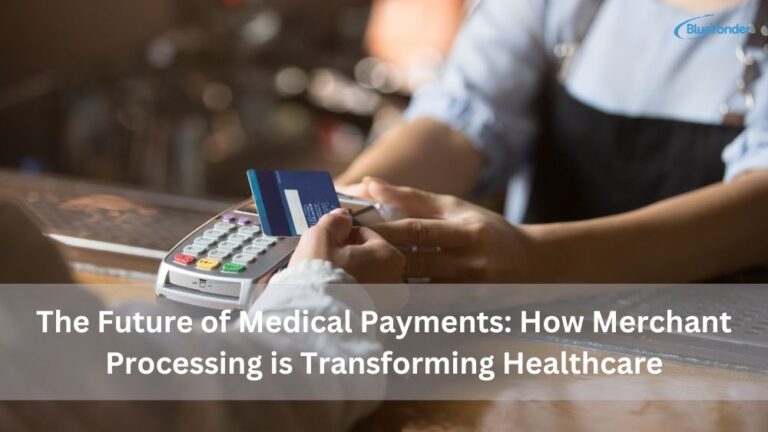Healthcare payment systems face tough challenges today, where high costs and slow processes are common. Medical practices seek swift and secure ways to handle transactions. That’s where merchant processing solutions enter. These services offer hope, promising to streamline payments efficiently and easily. With unlimited card processing now within reach, medical credit card processing is not just a trend; it’s a necessity that reshapes how medical practices manage finances.
The Current State of Medical Payments
While payment is paramount in health care, it frequently becomes a problem. This generates problems that start with traditional methods failing to meet modern needs.
Outdated Practices: Some providers are stuck on paper-based billing, causing unnecessary wastage of resources.
Extended Delays: Practice cash flows are generally disrupted by processing payments taking weeks.
Manual Errors: Hand-processed payments create some errors and make it difficult to tally accounts.
Patient Frustration: Patient displeasure mainly occurs due to slow and unclear reimbursement practices.
Limited Payment Options: Unlimited card processing is important to enhance patient convenience.
Security Risks: This leaves a gap for conventional methods that are not robust enough, posing high risks of breach.
Compliance Issues: Adherence to payment regulation in the bygone era was difficult.
Rise of Merchant Services for Medical Practices
New medical practices are changing the way of Medical merchant processing. They include credit card processing for medical practices, debit cards, internet shopping, and point of sales for transmitting and processing sensitive financial information. They have simplified billing systems with competitive cash flow rates, convenient means of paying, and increased patient satisfaction.
The need for a change in old payment processing to a new model. The new demands are fast and secure digital payment options, which have slowly replaced old and paper-based medical practices, known as medical merchant processing.
On the other hand, due to the limited card processing, healthcare providers have only been able to accept a specific number of payments at specific amounts. These newer merchant services also ensure safety and abide by medico-financial management standards, thus marking new times.
Impact of Medical Merchant Processing
With many benefits, medical merchant processing is transforming healthcare payments. Here’s how:
Efficiency: Facilitates billing and collection, streamlining the administrative load.
Security: Provides strong security measures that protect patients’ financial information.
Speed: Fastens up the transaction, leading to quick money transfers.
Patient Experience: It simplifies the payment process, thereby increasing their satisfactory experience with patient care.
Revenue Cycle: Makes payment faster and shortens the billing cycle, improving the practice’s cash flow.
Accessibility: Provides limitless card handling and increases options for payments.
Compliance: Guarantees that all transactions conform to industry standards, rules, and regulations.
Technological Advancements in Payment Processing in Healthcare
It is imperative to stress that technology has brought changes regarding the processing of payments within the healthcare sector. These are contactless payments, and patients can swipe their payment cards, thus promoting ease and safety. Developments in mobile payment technology now allow customers to do banking via their smartphones or tablets.
Another major achievement in the healthcare sector was integrating the billing system. They support combined billing operations that make mistakes less likely and simplify other administrative operations. Some benefits include fast patient billing, greater accuracy, and improved efficiency.
These technologies are used in medical practices to provide quicker payment solutions. This move provides medical providers with the speed and security they require today, which are key areas of concern for the medical industry through its ongoing digital revolution of medical payments.
Future of Medical Payments
The horizon for medical payments is dynamic and promising, with several trends indicating a transformative future:
Widespread Adoption of Contactless: The future may see hygiene becoming a proxy for speed in the age where contactless ways of doing business may be commonplace.
Mobile Payment Growth: Consumer technology trends increase medical transactions through mobile platforms.
AI and Machine Learning: This will help these technologies prepare in advance for payment issues, fully automate the billing process, and eliminate errors.
Blockchain for Security: Blockchain could make payment processing more secure and transparent.
International Standards: They are important worldwide and enable standardized international payments.
Unified Payment Platforms: There is also likely to be more consolidation of marketplaces that bundle several payment methods.
Personalized Payment Plans: Personalized payment options are based on the patient’s history or willingness to take particular drugs.
Conclusion
Merchant processing is pivotal in healthcare payments by enhancing efficiency, increasing safety, and boosting services. To remain on top, healthcare providers must adopt medical merchants and unlimited card processing. However, this change doesn’t merely represent an overhaul. It signifies future-proofing for patient transactions. These benefits help providers to take the lead in this revolutionary revolution. Discover seamless payment solutions with Blue Yonder Corp, where secure and efficient merchant services meet the needs of modern healthcare. Act now!


